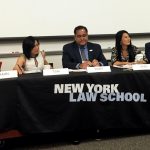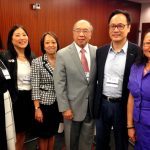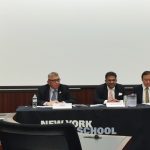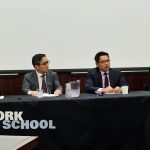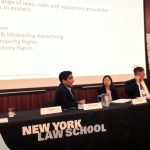For Immediate Release
Sept. 6, 2016
For More Information, Contact:
Brett Schuster, Communications Manager
[email protected], 202-775-9555
WASHINGTON — Today, President Obama nominated Abid R. Qureshi to the U.S. District Court for the District of Columbia. If confirmed, Qureshi will be the first Pakistani American and Muslim American to serve as an Article III federal judge. The National Asian Pacific American Bar Association (NAPABA) applauds his nomination and encourages the Senate to swiftly confirm him to the bench.
“Abid Qureshi is an experienced litigator with extensive commercial and pro bono experience who has the temperament and qualifications to ably serve as a judge for the District Court for the District Columbia,” said Jin Y. Hwang, president of NAPABA. “I urge the Senate to quickly confirm Mr. Qureshi to the District Court.”
Qureshi is a partner at Latham & Watkins LLP, where he chairs the Global Pro Bono Committee. He is the former co-chair of the firm’s Washington, D.C., Litigation Department where he managed the largest litigation department in the firm. He is a complex commercial litigator with a focus on False Claims Act, federal securities, health care fraud, and white collar criminal matters. He also handles complex internal corporate investigations.
Qureshi has been recognized by Super Lawyers and the National Law Journal for his excellence in the profession. He is a graduate of Cornell University and Harvard Law School.
NAPABA commends President Obama for nominating Abid R. Qureshi to the bench. NAPABA thanks Representative Eleanor Holmes Norton for recommending Qureshi to the White House.
For more information, the media may contact Brett Schuster, NAPABA communications manager, at202-775-9555 or [email protected].
The National Asian Pacific American Bar Association (NAPABA) is the national association of Asian Pacific American attorneys, judges, law professors, and law students. NAPABA represents the interests of almost 50,000 attorneys and approximately 75 national, state, and local Asian Pacific American bar associations. Its members include solo practitioners, large firm lawyers, corporate counsel, legal services and non-profit attorneys, and lawyers serving at all levels of government.
NAPABA continues to be a leader in addressing civil rights issues confronting Asian Pacific American communities. Through its national network of committees and affiliates, NAPABA provides a strong voice for increased diversity of the federal and state judiciaries, advocates for equal opportunity in the workplace, works to eliminate hate crimes and anti-immigrant sentiment, and promotes the professional development of people of color in the legal profession.
To learn more about NAPABA, visit www.napaba.org, like us on Facebook, and follow us on Twitter (@NAPABA).


